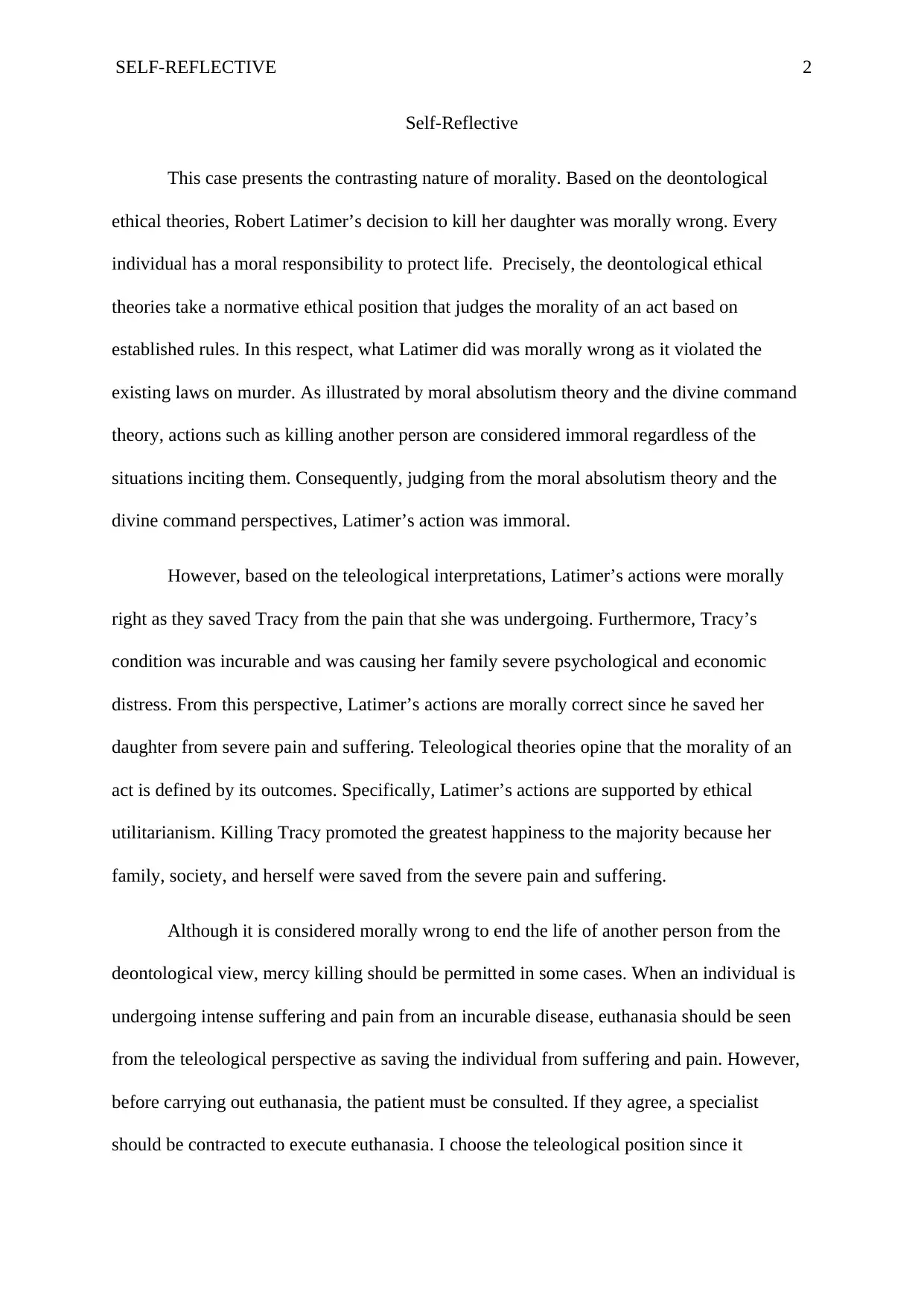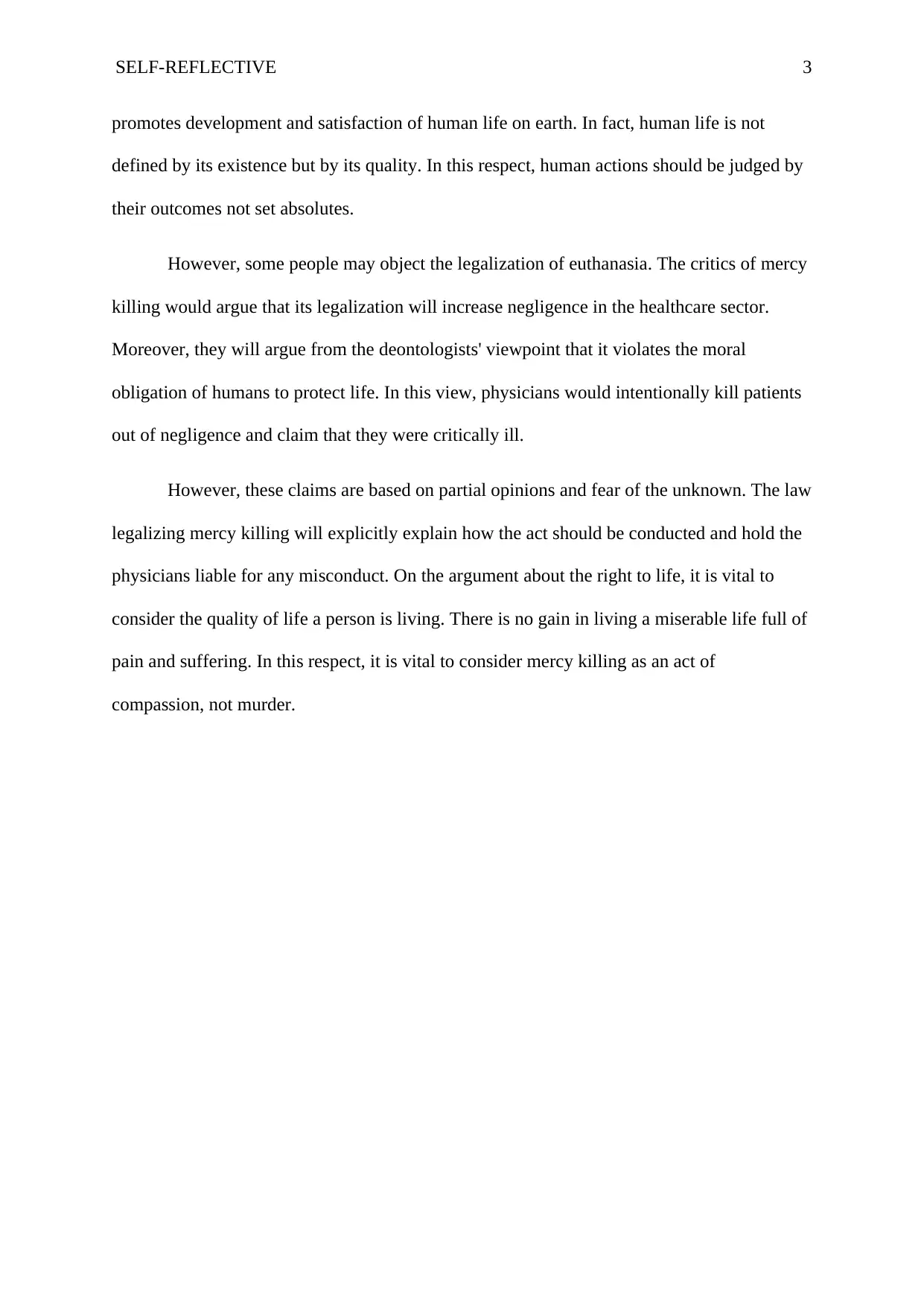Self-Reflective Essay: Analyzing Morality and Ethical Theories
VerifiedAdded on 2020/03/16
|3
|563
|38
Essay
AI Summary
This self-reflective essay delves into the complexities of morality and ethical theories, specifically examining the contrasting perspectives of deontology and teleology through the case of Robert Latimer. The essay analyzes the moral implications of Latimer's actions, considering the deontological view, which emphasizes moral absolutes and the sanctity of life, and the teleological view, which focuses on the outcomes of actions, particularly in terms of reducing suffering. The essay explores moral absolutism, the divine command theory, and ethical utilitarianism to evaluate the morality of Latimer's actions. It argues for the permissibility of euthanasia in cases of severe suffering, emphasizing the importance of quality of life and compassion. The essay also addresses potential objections to legalizing euthanasia, such as concerns about negligence and the violation of the right to life, and offers counterarguments based on the need for compassion and the importance of considering the patient's quality of life. Overall, the essay concludes by advocating for a teleological approach that prioritizes reducing suffering and promoting human well-being, while acknowledging the complexities and ethical considerations surrounding euthanasia.
1 out of 3









![[object Object]](/_next/static/media/star-bottom.7253800d.svg)